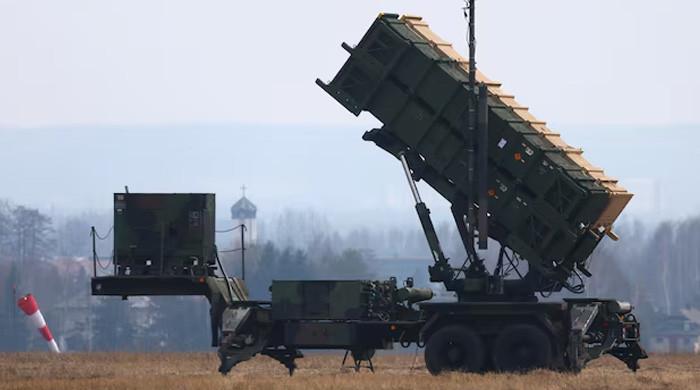- Trump threatens secondary sanctions to Russia in 50 days.
- He says that up to 17 patriots batteries could be available ‘very soon’.
- Russian markets increase, which suggests relief for the delay.
The president of the United States, Donald Trump, announced the new weapons for Ukraine on Monday and threatened with the buyers of Russian exports with sanctions unless Russia accepts a peace agreement in 50 days, an important change in the policy caused by frustration with Moscow.
Sitting one next to the other with the general secretary of NATO Mark Rutte in the Oval office, Trump told journalists that he was disappointed with Russian President Vladimir Putin. Millions of dollars in arms would be distributed to Ukraine, he said.
“We are going to make first -line weapons, and will be sent to NATO,” Trump said, added that Washington’s NATO allies would pay the weapons.
Weapons would include patriotic defense missiles, which Ukraine has urgently sought to defend their cities of Russian air attacks.
“It’s a complete complement to batteries,” Trump said. “We will have come very soon, in a matter of days … a couple of countries that have Patriots are going to change and will replace the patriots with those who have.”
Some or 17 patriots batteries ordered by other countries could be sent to Ukraine “very quickly,” he said.
His threat of imposing the so -called secondary sanctions to Russia, if carried out, would be an important change in the policy of Western sanctions.
The legislators of both political parties in the United States are pressing for a bill that authorizes such measures, aimed at other countries that buy Russian oil.
Throughout the war of more than three years, Western countries have cut most of their own financial ties with Moscow, but have prevented taking measures that restrict Russia to sell their oil elsewhere. That has allowed Moscow to continue winning hundreds of billions of dollars, from shipping oil to buyers such as China and India.
“We are going to do secondary tariffs,” Trump said. “If we do not have an agreement in 50 days, it is very simple and will be 100%.”
A White House official said Trump referred to 100% tariffs on Russian goods, as well as secondary sanctions to other countries that buy their exports.
Grace period
Even so, Trump’s announcement of a 50 -day grace period was received with relief by investors in Russia, where the ruble was recovered from previous losses and stock markets.
“Trump was carried out below market expectations. He gave 50 days during which Russian leadership can find something and extend the negotiation track. In addition, Trump likes to postpone and extend such deadlines,” said analyst Artyom Nikolayev de Invest was, a financial information firm.
Trump, who returned to power this year promising a rapid end of war, said his change was motivated by the growing frustration with Putin, who, he said, had talked about peace but continued attacking Ukrainian cities.
“Actually, we probably had a deal four times. And then the treatment would not happen because the bombs would be thrown that night and I would say we are not making any agreement,” Trump said.
Since he returned to the White House, Trump has sought the approach with Moscow, speaking several times with Putin.
His administration has retired from Pro-Ucranian policies, as supporting kyiv’s membership in NATO and demanding that Russia retire from the entire Ukrainian territory.
But until now, Putin has not yet accepted a Trump proposal for a high unconditional fire, which Kyiv quickly supported. The last days have seen Russia use hundreds of drones to attack Ukrainian cities.
Trump relieved his frustration last week, saying: “Putin throws us a lot of shit.”
Earlier on Monday, Ukrainian President Volodymyr Zelenskiy held conversations with Trump’s envoy, Keith Kellogg.
Zelenskiy said he had discussed “the way to peace and what we can practically do together to bring it closer”, including “strengthening Ukraine air defense, joint production and the acquisition of defense weapons in collaboration with Europe.”
He declared an air writing alert in Kyiv shortly after Zelenskiy conversations with Kellogg took place.
Separately, on Monday, Zelenskiy said he would replace his long -minister of Data Denys Shmyhal with Shmyhal’s first deputy, Yulia Svyrydenko, in “a transformation of the executive branch.” Its appointment will require parliamentary approval.
Svydenko, 39, is an economist and previously served as Minister of Economic Development and Commerce and as an attached head of the Zelenskiy office. She played a key role in negotiations between Kyiv and Washington in a mineral agreement.
Russia, which began its large -scale invasion in February 2022, has approximately one fifth of Ukraine. Its forces slowly advance in eastern Ukraine and Moscow shows no signs of abandoning its main war objectives.




